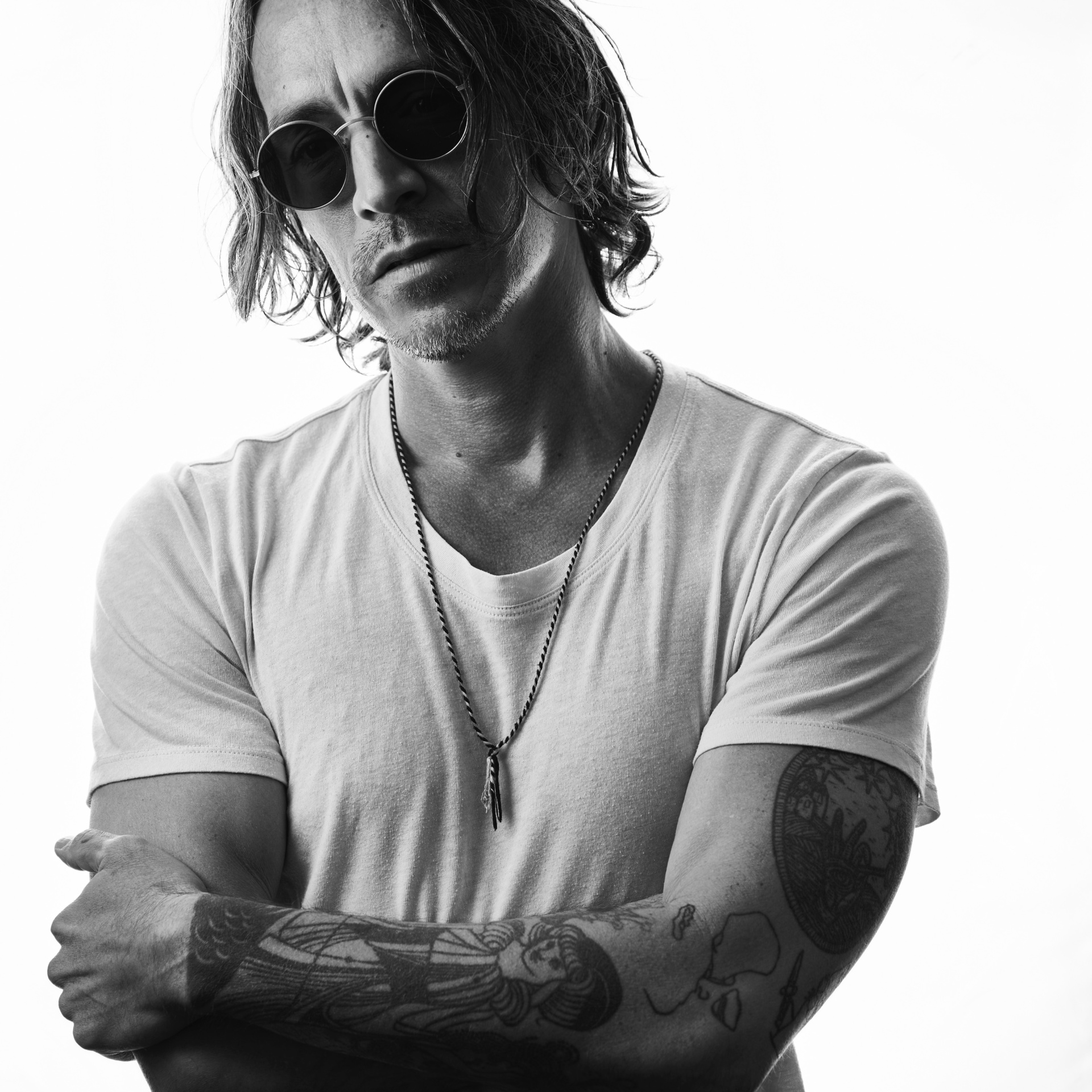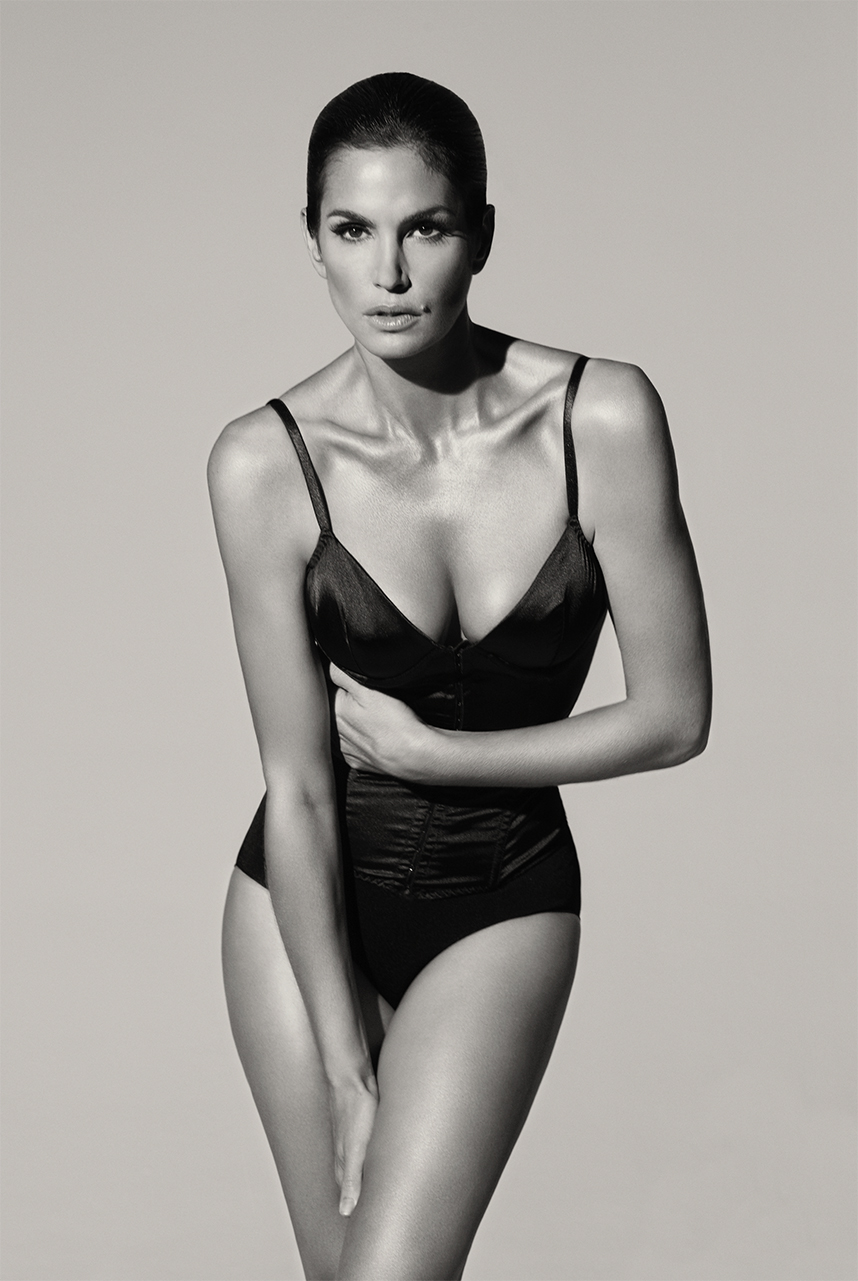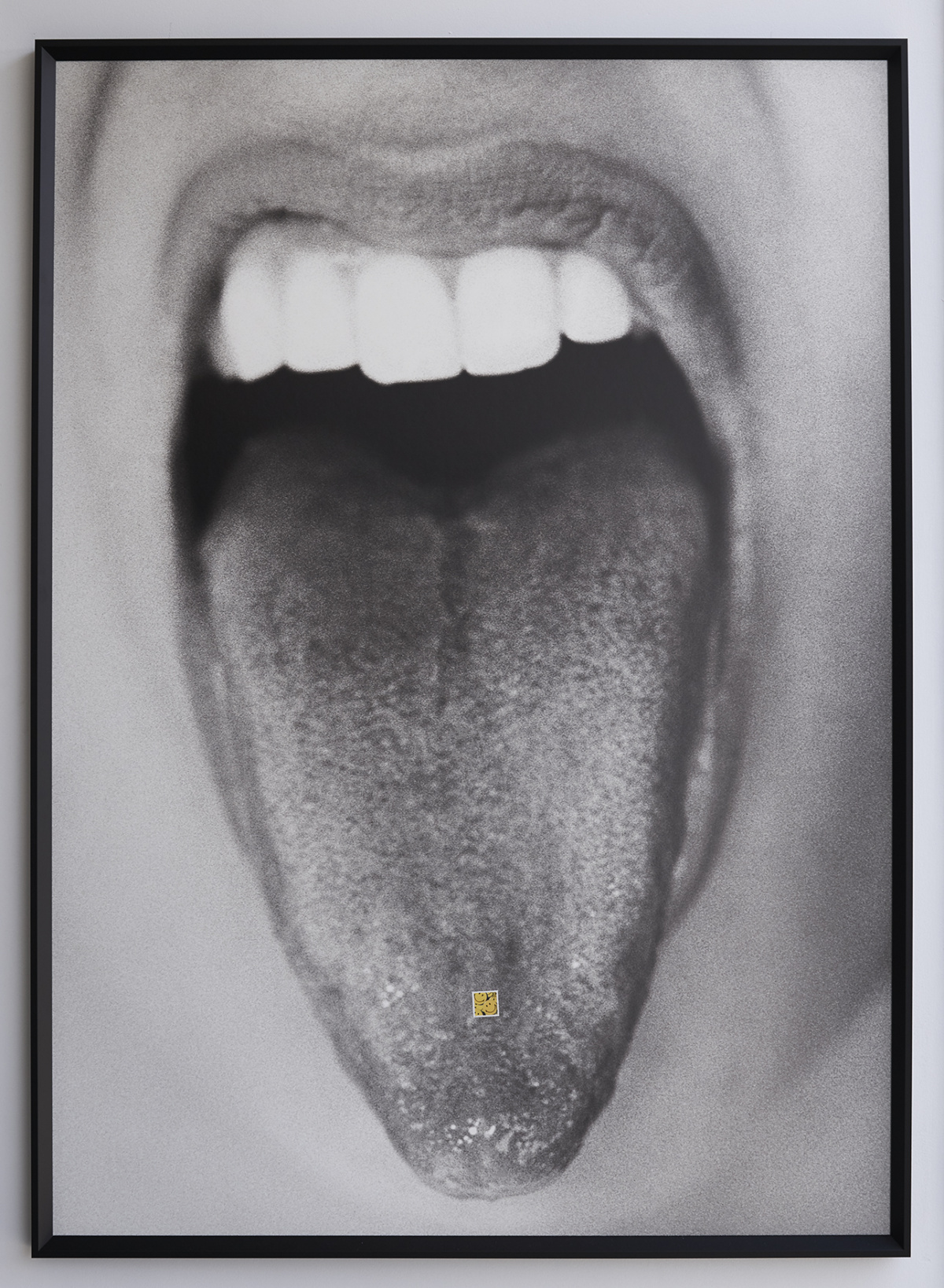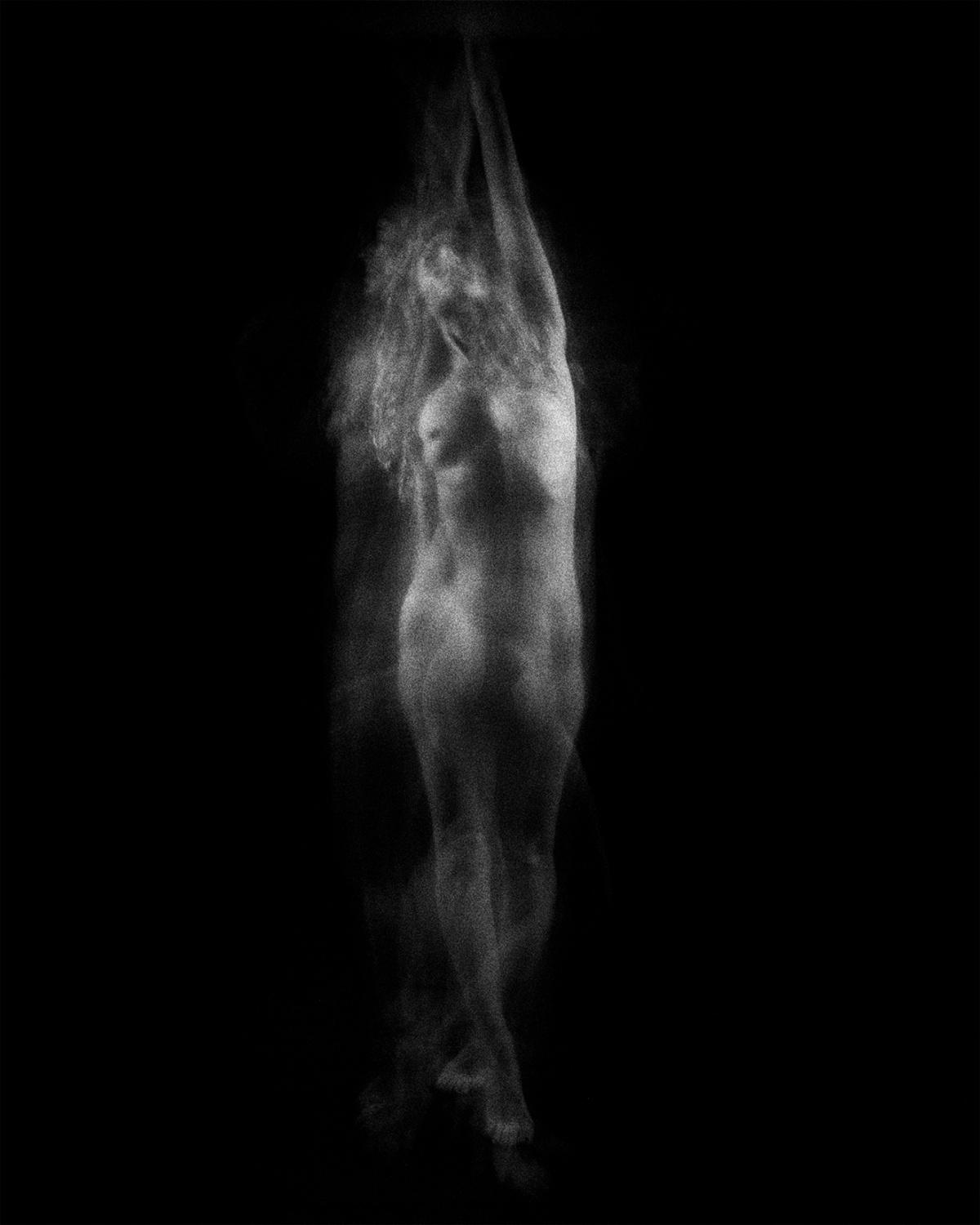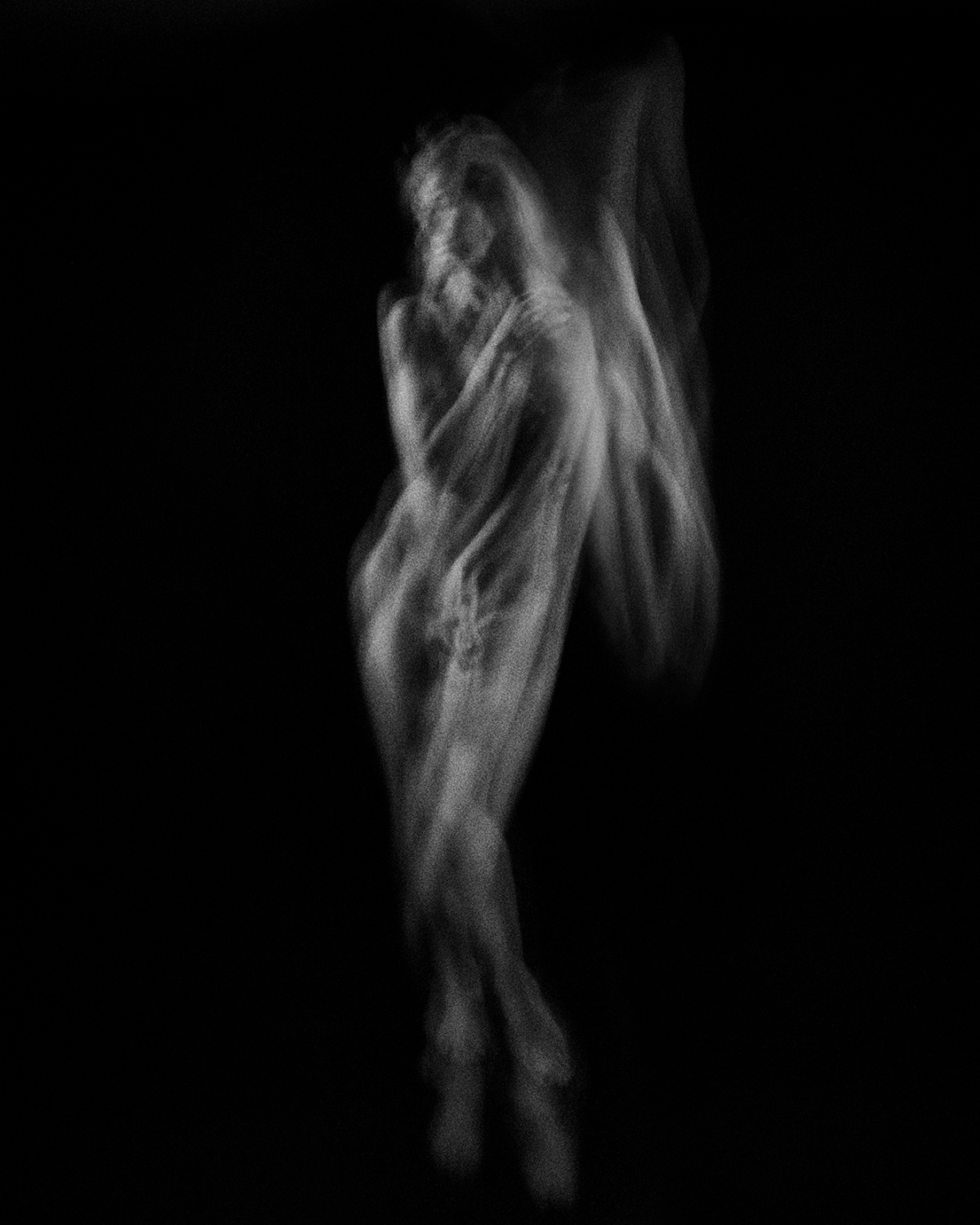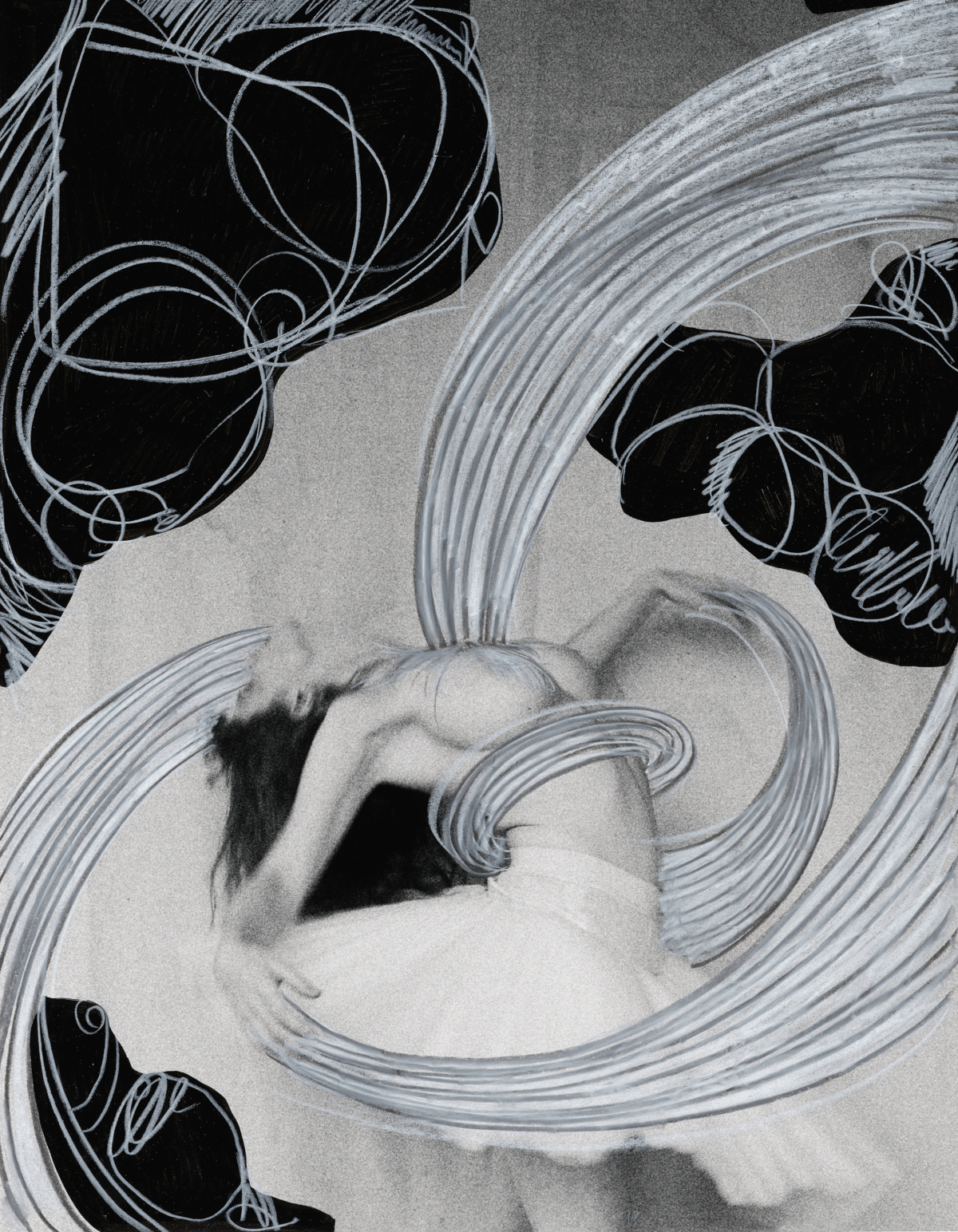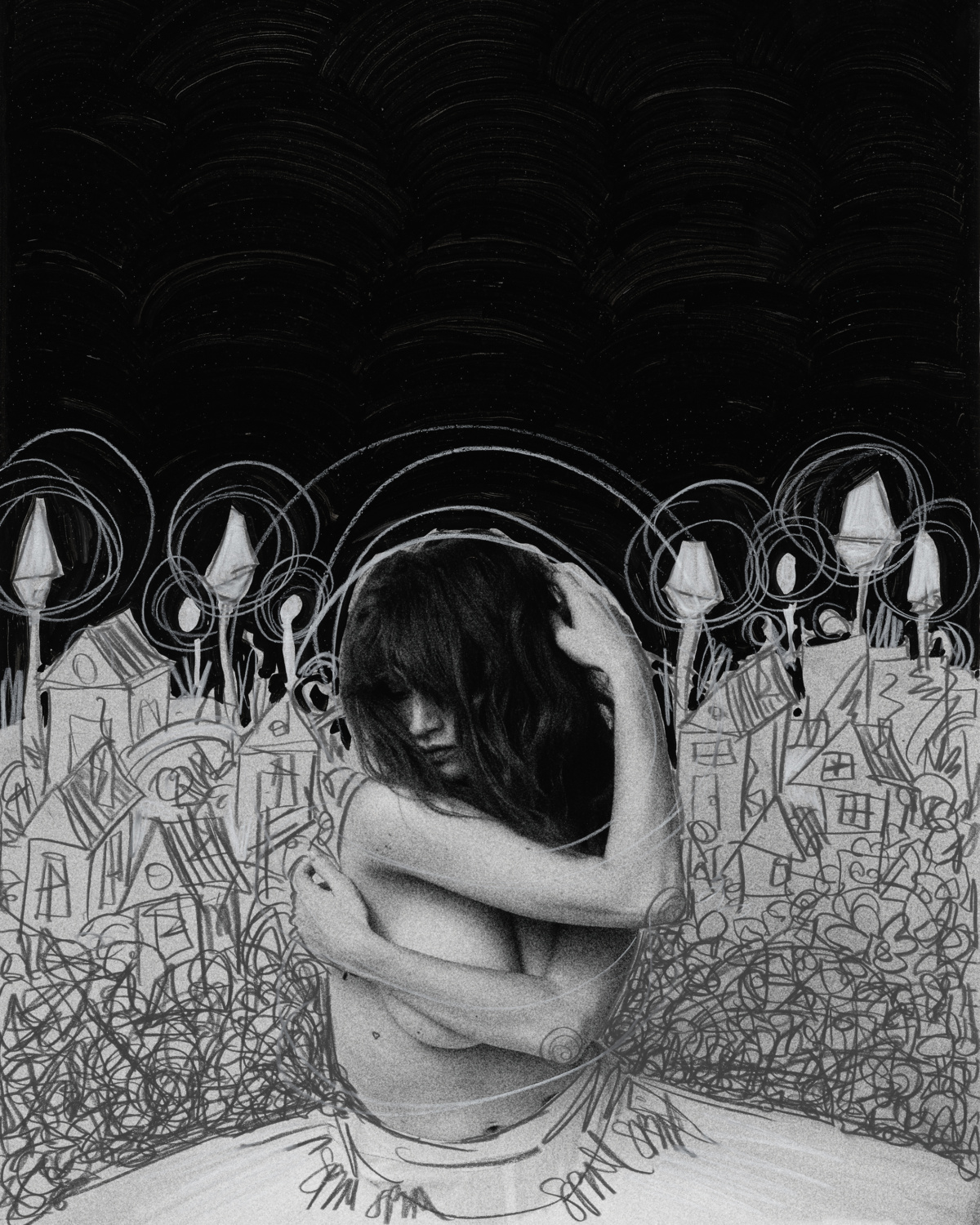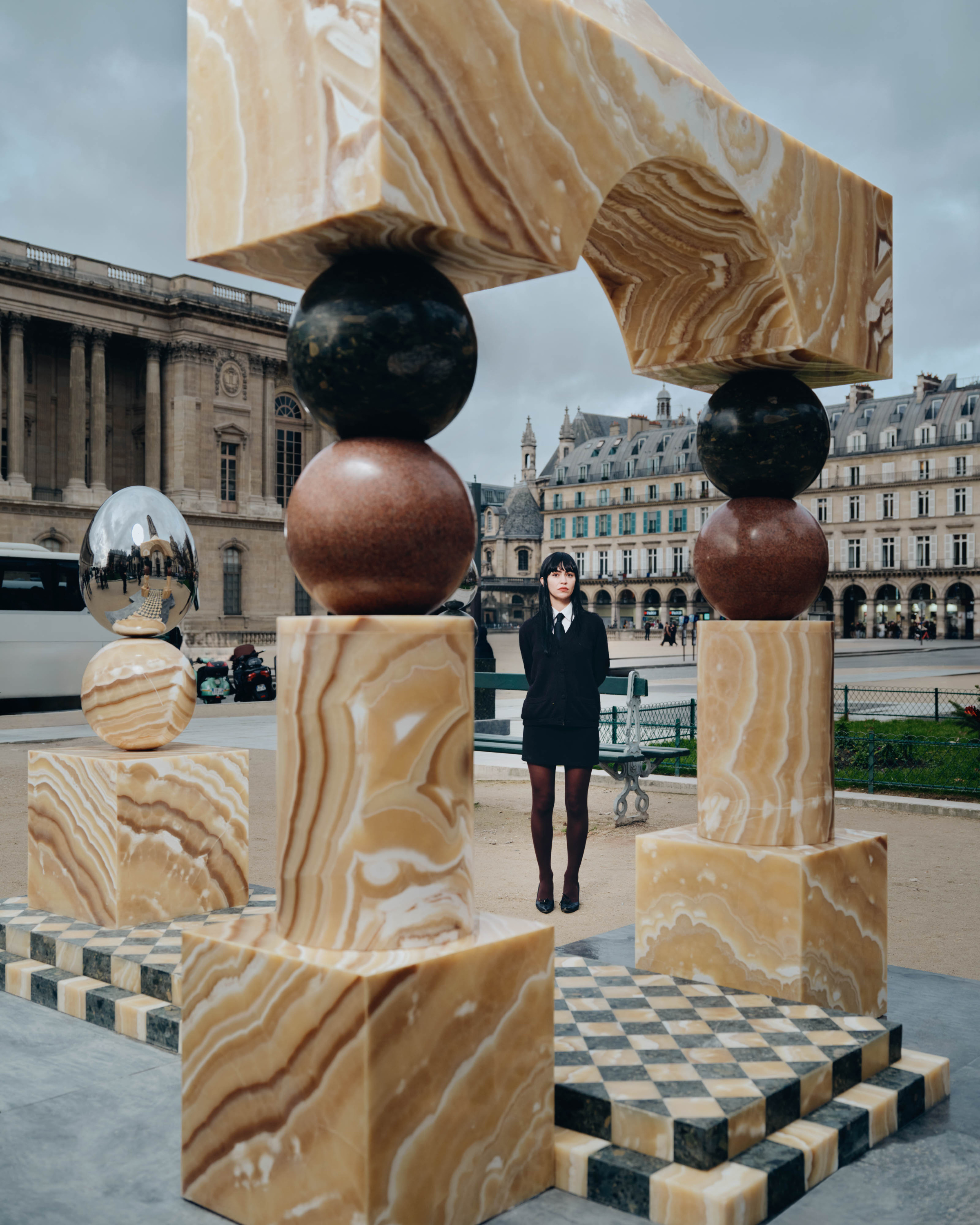Brandon Boyd is a musician, author, and visual artist, best known as the lead vocalist of the multi-platinum selling rock band Incubus. With more than 23 million albums sold worldwide, Incubus has produced hit songs like “Drive” and “Wish You Were Here.” In addition to his music career, Brandon is also a published author and accomplished visual artist with three books and many art exhibitions to his name. Recently he has collaborated with renowned photographer Brian Bowen Smith, who has captured stunning images of some of the world’s biggest celebrities—including Angelina Jolie, Jennifer Aniston, and Cindy Crawford.
Chris Force: OK, so I know you both go way back. How did you meet?
Brandon Boyd: Brian and I met in 1997 in Hawaii. Incubus was the first of a handful of bands on this festival called the Big Mele. It was Incubus, Save Ferris, NOFX, 311, and the Wu Tang Clan. It was the biggest festival our band had ever done at that point. We were over the moon to even be on the roster.
I ended up meeting Brian and his now wife Shay, and we became best friends. Brian started to come on tour with Incubus shortly thereafter and help craft what became the early aesthetic for our band.
Brian Bowen Smith: I was there doing a documentary on 311 and shooting pictures and randomly ran into Brandon in the grass. My wife spotted him and said, “Oh, he looks cool.” He was just sitting on the grass far back watching bands.
Brandon: I was still in the period of my career, well I’m still there actually, of deep observation of my peers. Anytime I am in a festival setting I love to watch as many bands as possible. I really look forward to doing festivals because of that.
- Brian Bowen Smith’s image of Cindy Crawford was featured on the cover of his book Projects (Damiani).
- Brian Bowen Smith photo from the “One” series.
Chris: How did your creative collaboration begin?
Brandon: We have only started to embellish each other’s artwork in the last handful of years, but we’ve been collaborating (in other ways) together for 20-plus years. Brian will take a photograph, in this case a beautiful dancer and suggest, “You should paint on these photographs.” It was a daunting task initially because they seemed like finished pieces already.
All I was going to try and do was embellish them in a certain way. So I ended up painting on the photographs, and it was a really fun and challenging project to try.
Brian: I’m enjoying maturing as an artist. Everyone grabs a camera now and they’re a photographer because they took a picture of their friend naked, and it looked cool. But to redefine my work and to see what Brandon did to continue the movement aspect of the shoot with colors and rainbows and things I never would have imagined, it worked perfectly. We don’t tell each other what to do. I just said, “Here’s the pictures that moved me as an artist.” When he added his vision it just blew me away; it’s the beginning of something that could be fucking brilliant.
Brandon: There’s a fantastic uselessness in art where it can be purely aesthetic, and it can move you just because you find it beautiful for some unknown, unimportant reason. And then there’s the potential to tell the truth with art—a truth that maybe would have been otherwise obscured or buried beneath too many layers to discover. And through the emotionality that’s transmitted in a photograph or through a painting or through someone’s fantastic skill as a dancer or an actor you’re capturing the potential to reveal deeper universal truths. They can be momentary, ephemeral truths, which can be just as important.
I’ve always been inspired by photography as an art form, as I have been by painting and our music and dance. I’m curious, Brian, if you have found similar levels of inspiration from art forms that aren’t your own?
- “Dancing With Your Angel”
- “Dancing With Your Angel” (series) was inspired by how Brian perceives angels in his dreams.
Brian: The thing about photography that is super hard now is that if I go and paint, that’s one painting, but if I take a picture of that tree, you could take a picture of the same tree. My challenge as a photographer is how do I do something different in the world of digital photography and phones?
I used to assist the incredible photographer Herb Ritts. I made a shot (of my own), and I was so stoked on the shot. I showed my friend and they said, “You can’t copy Herb directly.” I’m like, “What are you talking about?” And then I Googled it. It was the fucking exact same photo. I mean, it was a complete rip-off. I did it unconsciously; you wouldn’t know which one is which. It just opened my eyes. You really have to do your research nowadays.
Brandon: There is some wiggle room. I’m not advocating for plagiarism, but when we’re younger, before we’ve ideated our way into a unique or original voice in creativity, we emulate our heroes. We emulate our influences. We’re a species that learns through imitation. We did the same thing as a band. Our first real record was put out in 1997, S.C.I.E.N.C.E. A lot of people really liked that record. I like parts of it, too. But when I listen to it all I can hear are influences and it troubles me. But then I remind myself we were between the ages of 17 and 19 when we wrote those songs. We were literally kids, and kids learn by imitating their heroes.
Soon thereafter I learned the best way to honor my influences was not to copy them. That’s a young adult realization as you kind of stumble your way into adulthood, even if it’s uncomfortable at first. Then some amazing things start to happen and you find that your work starts getting emulated by other young people. That’s one of the ways you know you’re on the right track, that you’re paying it forward.
“There’s a fantastic uselessness in art where it can be purely aesthetic, and it can move you just because you find it beautiful for some unknown, unimportant reason.”
Brian: It’s about finding your own identity. The best compliment I’ve ever gotten today was Brandon said he was in the grocery store and he saw a photo in a magazine and thought, “Oh, that’s a Brian Boyd Smith.” I thought, “Fucking hell. That is literally the goal.”
Herb (Ritts) told me, “Look, you’ll take lots of great pictures, but until you’re getting paid as a photographer for 10 years, do not call yourself a photographer. Because you’re not.” He was so right. The business of photography is about the amount of trust you have to gain. I’ve done it for 20 years. (Clients) know what they’re going to get. I’m going to give them exactly what they want. And that comes with trust and relationship and time.
Brandon: I’m so curious what your thoughts are on artificial intelligence and what’s been called AI art. I have lots of feelings about it and it’s moving so fast that I don’t know if any of us are really capable of understanding where it could lead.
Brian: I’ve always embraced the future. I’ve always embraced technology. Herb was a black and white master. He only used film; that was his thing. He was that guy, all those beautiful black and white images of Janet Jackson and all the supermodels huddled up. But while I was still working with him he was already fucking with digital. The first little Nikon there was, a Nikon Coolpix like 3-megapixel camera. He said, “When that future comes I’m going to be ready.”
Brandon: I completely agree with you. I’ve been very open to embracing and experimenting with new tech as it’s come out. We made our first album on tape, we made our second and third albums on tape and Pro Tools, and then it moved completely to Pro Tools. We’ve always utilized the latest technologies, but we always had a kind of ethos around it that we didn’t want to use the technologies to cheat. We want it to sound like us. This artificially intelligent tech that’s available to people now is the first time in my life when a new tech has become available that I’ve felt this knee jerk reaction to push back against it. It feels so much like cheating.
Brian: People ask me, “Do you miss film?” I miss it like a cold. If you actually want to be a photographer and the first thing you do in a meeting is say you only shoot film, they’re going to pass. I use different cameras for different shoots based on what the call is. You learn a professional adaptability.
- “tiny dancer ii” by Brandon Boyd, Brian Bowen Smith, and Sarah Hay
Brandon: I think that to establish a balance with our relationship to technology is important. You can be fully old school; you can be fully analog. And if you’re producing something that is so unique as to transcend time, which sometimes people do— sometimes people only shoot film, or they only record on tape, and they make incredible shit, and God bless. I have nothing against that. Me personally, I like having at least a peripheral knowledge of what tech is being utilized so I can decide when it’s appropriate to utilize it and when it’s appropriate to step away from it.
I think the onboarding of whatever technology is available to us in every realm has led to a greater democratization of art across the internet, but it’s also led to a sort of flattening. There are no longer peaks and valleys as extreme. It’s led to the homogenization of art. That’s what I’m afraid of, when people are like “I can be The Rolling Stones” without having to do the work. That to me is a slippery slope and leads to some unfortunate places, which we’re already seeing will be there. It’ll be abused from the start. But where I have hope is that there is a kid out there who’s fascinated by tape, who’s fascinated by film, who’s going to learn the art form from the ground up. That’s going to be the place where the next revolutionary artists emerge. There most certainly will be some eye-opening revelatory art that’s generated in cahoots with artificial intelligence. I personally just haven’t seen it yet.
Brian: When I take a great photo I still get like a little kid and I show everyone. If you love it, it never gets boring. You’re always striving to do better. I never feel like I made it. I still went the other day to practice lighting techniques. I don’t want to ever be caught with my pants down. I’m continuing to learn and getting inspired by everyone else younger and older.
Brandon: There’s sort of a principled nature to art, even though we try and approach it continually with a childlike fascination and unending curiosity. Amongst all of that there’s an ethos that anchors why you’re there, why you’re attempting to do what you’re doing.
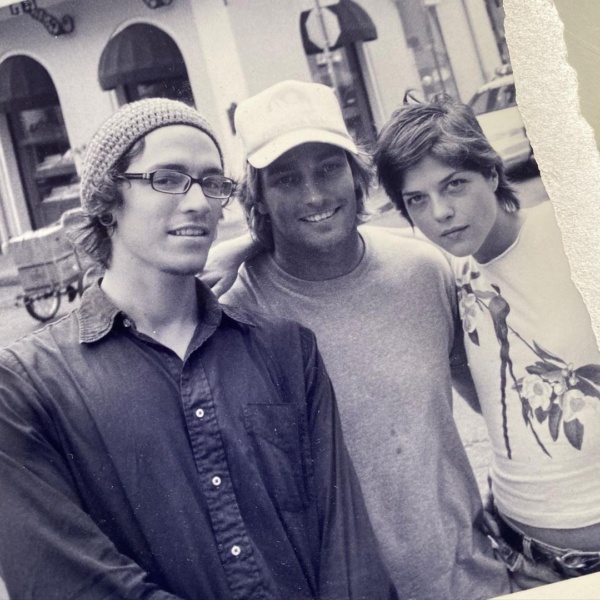
We have always had a decidedly DIY ethos to our band, and we still continue to have that today. We have amazing nights in front of large audiences, and we have not so amazing nights in front of large audiences, but the ethos always remains intact. It’s five people coming onstage together, not cheating. You get what you get that night. We’re going to do our absolute best in everything that we have. Sometimes it’s awesome, sometimes it’s just shy of awesome, and sometimes it fucking sucks, but you know what? We gave everything we had that day.
I think that is a reason why people still come to our concerts and people still like to hire you as a photographer decades in— because you arrive with an ethos. There’s a reliability in that ethos; there’s something you can hang your hat on.
Brian: People pick up on enthusiasm. If you really don’t love doing it it shows in your work. You just have to continue to do it daily and love it.
Brandon: I’m trying to find a way to make sense of a very, very strange experience of being incarnate in a body. It’s like, “Why am I here? Why am I in this body? What am I doing?” And art, music, painting, film are all really curious ways of making sense of things. I’m looking for meaning, and art is maybe the worst way to do it or the best, depending on the day.
Brian: That’s a great thing to put on your fridge. “Why am I here?” I’ve had like 10 different lives, even acting I was killing it. I was fucking on Friends.
Brandon: Brian was on Friends!
Brian: I was! I was crushing it and had bad dyslexia and couldn’t remember the lines. I was doing roles with Jen Aniston, and I panicked. And I just fucking straight quit. Said I’m done. I don’t like this anxiety. I’m done. My manager and agent freaked out. They’re like, “Are you out of your fucking mind? You’re so close to being there. Don’t give up!” But I was done. I just made a decision; I didn’t love it.
People pick up on enthusiasm. If you really don’t love doing it it shows in your work. You just have to continue to do it daily and love it.
Brandon: You were great on Friends, though, I gotta say.
Brian: I truly believe that whatever God or force of nature brought me to this place where I am now I have to give back. Any chance I can help someone, I drop the hat and just go do it.
Brandon: Incubus wouldn’t be where we are if we hadn’t stood on the shoulders of the people that came before us. We rented a 15-passenger van and a trailer, and we loaded all our gear every night for years. We would piggyback on bigger tours. Some of these bigger bands would recognize that we were not sleeping and were barely eating, so they would start giving us a dressing room the venue had saved for them. In the early days some of the catering wouldn’t even be available to us. I’ll never forget, we were opening up for the band Korn; we were still in a van and trailer, and we were the first of three bands. The guys in Korn noticed that we were showing up like emaciated and under slept, and they were like, “Are you hungry? Go get some food.” But we didn’t have the right pass. They were like, “Get these motherfuckers the right pass!” The guys in 311 did that with us. Ozzy Osbourne did that with us. They would make sure we got fed. As we continued to sort of climb the ladder we would notice some of the bands that were coming out with us were in a position that we were in earlier.
That’s part of that ethos—it’s like you’re paying forward this whole thing. I suppose it also lends itself to an understanding that there is no point in in life where you’ve “made it.” The idea that you’ve somehow arrived somewhere is mostly illusory. If you are no longer searching, and you’re no longer curious creatively, to me that’s failure. If making it means that you’re done, I don’t want to make it. When we’re kids, we try to dig to the bottom of the sandbox. I love being in the sandbox, and I don’t want there to be a floor. I want to dig to the other side of the Earth and then dig my way back and do it again.
A version of this article originally appeared in Sixtysix Issue 10 with the headline “Brian Bowen Smith in Conversation with Brandon Boyd.” Subscribe today.
